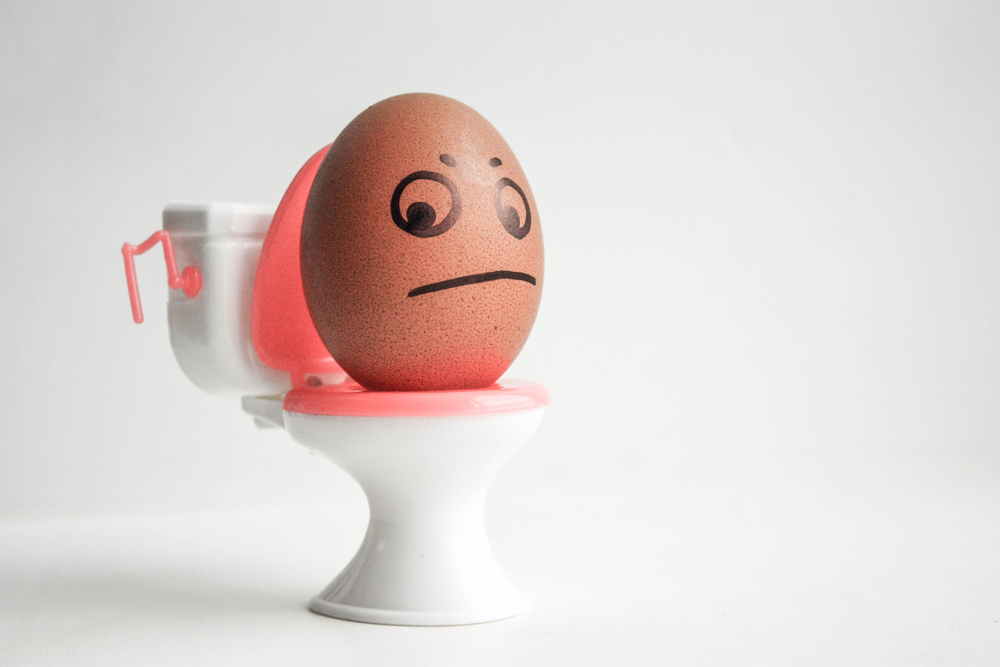Causes, Symptoms, And Treatments Of Dark Stools
Causes, symptoms, and treatments of dark stools
Stomach problems have become a regular thing in this day and age. One of the most common symptoms is the stool getting hardened and turning dark. There are multiple reasons as to why you may have dark stools, ranging from a normal injury in your gastrointestinal tract or eating dark-colored, unhealthy foods, to some serious health conditions such as bleeding or ulcers in your digestive system.

Dark black stools, although considered a common symptom of stomach problems, can be a symptom of some very dangerous diseases as well. This condition should always be checked with the physician for a proper diagnosis.
Common causes of dark stool
It is usually the bleeding in the upper portion of your digestive system that causes black stools; whereas, bleeding in the lower portions would lead to stools being red and bloody. In most cases, it is an ulcer in the esophagus, leading to gastritis. But there are a variety of other reasons as to why your stool is turning black and dark in color.
These are some of the common medical conditions whose symptom may be black and dark stools.
- Esophageal Varices
This is the process of rupturing of swollen veins from your lower esophagus. The bleeding from these veins causes the stool to turn dark and black. - Stomach ulcers
These are sores in the lining of your stomach that cause black and dark stools as well as stomach aches. - Peptic ulcers
These are also sores in the lining of the small intestine and the esophagus. - Gastritis
When the stomach lining becomes weak, it allows the digestive juices to cause inflammation and damage. This condition is known as gastritis. - Indigestion
Sometimes, eating too much oily and unhealthy food causes your gastric juices to react badly which causes hardening and dark stool. This can be the symptom to develop dark stools.
Apart from this, there are also other simple causes that may lead to your stool turning black in color. Even eating foods such as black licorice, dark chocolate, blueberries, etc. can cause your stool to turn dark in color. In cases of dark stool, foods such as these should be avoided.
More serious causes of dark stool
Here are some of the more serious causes of black stool that will require immediate medical attention.
- Necrotizing enterocolitis
This is a disease which develops in the tissues of the inner linings of the small and the large intestine. As the tissues die, the whole stomach lining gets inflamed. In certain cases, this may even cause a hole in the inner linings of the stomach. This disease is certainly a medical emergency. - Colon cancer
According to a cancer society, every person has a 1/20th chance of developing colon cancer. Prolonged periods of stool turning black and dark should not be left unchecked. - Intussusception
This is a severe condition of the body in which the intestine folds and blocks the other part. One of the major symptoms of this disease is dark and black stool which can be a potentially life-threatening condition. - Platelet function disorder
When certain platelets turn dysfunctional, it leads to severe bleeding and black stool.
Apart from these medical conditions, black stool can also be a result of certain medications and chemotherapy.
Treatment for Dark Stool
The occurrence of black and dark stool should not be left unchecked and should be diagnosed through a thorough medical examination. The doctor is most likely to test the blood and stool samples in case of a normal problem. He will check for blockages and infections through a thermal scan if the condition is severe.
In case of continuous black stool, endoscopy or colonoscopy may be required to locate any source of bleeding.
Depending on the condition and the symptom, the treatment for black and dark stool can vary from a simple diet change or use of antibiotics to surgery for treatment of abnormal veins or remove polyps. In cases of black and dark stool along with other health conditions like stomach ache and dizziness, an immediate visit to the physician is recommended.
If the condition is not severe, some common diet changes such as high-fiber diets are recommended. Things like whole grains, pear, beans, etc. can help in reducing common stomach symptoms and dark stool. Sometimes, a high-fiber diet may do more harm than good, depending on the condition. So checking your diet with the doctor is necessary.
The dark stool is a condition that has many causes. Some of the simpler causes are gastritis and indigestion, whereas it may also be a symptom of colon cancer or platelet function disorder. It can also be a result of eating certain types of food such as dark chocolate and blueberries. Such a condition should always be checked with the doctor and the treatment can range from simple medication to surgery. High-fiber diets help during such conditions.


